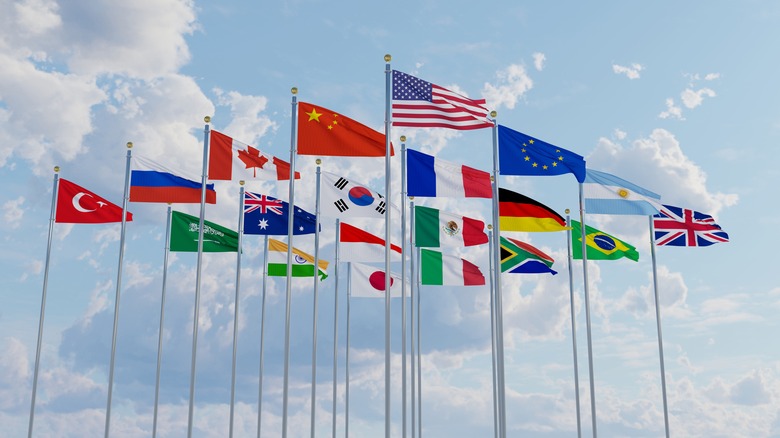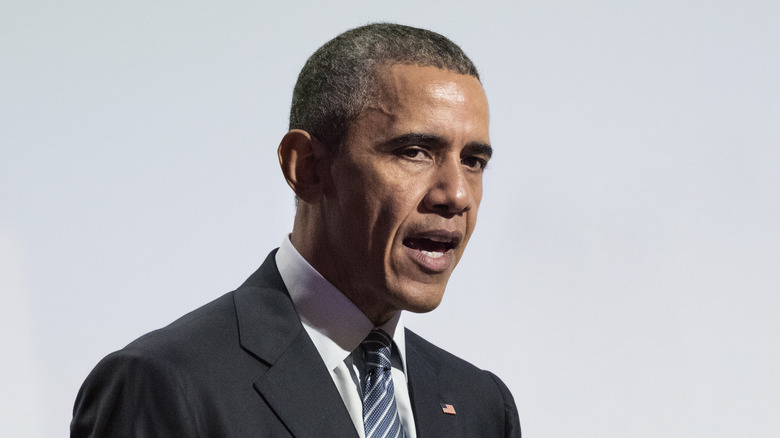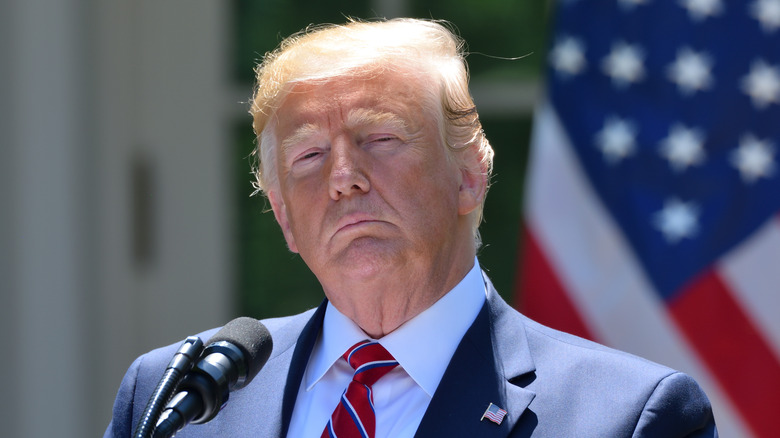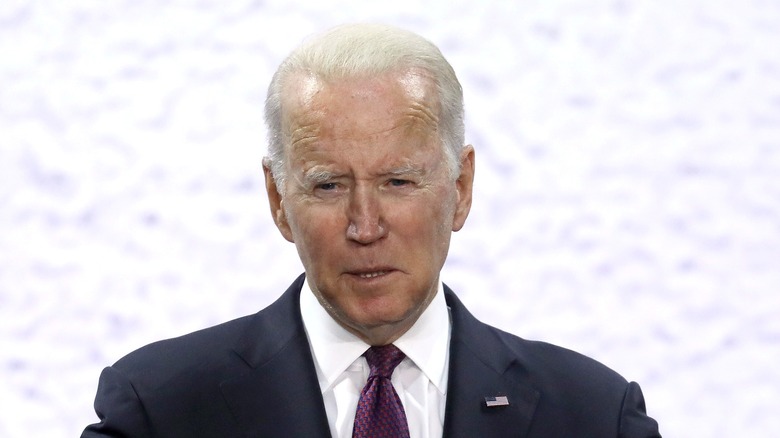What Is The G20 Summit And What Does It Actually Do?
Each year, representatives from 20 of the world's largest economies meet for the G20 summit to discuss topics ranging from international trade to the environment and the global economy. Held in a different location every time, the objective of the gathering is to lay the groundwork for international cooperation on a number of pressing matters going forward.
The G20 (or Group of 20) members hail from all across the globe and include Canada, the United States, Mexico, Russia, Saudi Arabia, and the European Union. Spain reportedly has an open invitation as a G20 guest. Moreover, the G20 seems poised to grow. At the 2022 summit, President Joe Biden announced U.S. support for the African Union — and its 55 member states — joining the G20. That decision could be finalized at the 2023 G20 summit on September 9, 2023 in New Delhi, India, the Deccan Herald reports.
Although formed in 1999, the first G20 summit happened in 2008 in the midst of the Great Recession, and since then, the international forum has seen many successes — but also several setbacks and challenges. In the meantime, G20's very existence has become controversial, according to the Council on Foreign Relations (CFR).
G20's success
In 2008, the first G20 summit met as an ongoing global financial crisis known as the Great Recession raged around the world, and through trillions in spending, fewer barriers to international trade, and other reforms, the group made strong moves toward recovery. From there, Reuters reported in 2009, the G20 also took steps to address Iran's nuclear development, an initiative led at that time by President Barack Obama, British Prime Minister Gordon Brown, and French President Nicolas Sarkozy.
Since then, the G20 has contributed to international diplomacy on the climate crisis. In 2016, ahead of the annual summit, President Obama and Chinese President Chinese President Xi Jinping said their countries would join the Paris Agreement to address climate change, a plan developed at the UN Climate Change Conference (COP21) in France. Meanwhile, a year later, in 2017, Obama's successor Donald Trump and Russian President Vladimir Putin helped broker a cease-fire in Syria at the G20 summit in Germany, according to The Atlantic.
High points aside, disagreement with the G20's existence emerged as early as 2011, just three years after the first summit happened. That year, political analysts Ian Bremmer and economic consultant Nouriel Roubini wrote in Foreign Affairs, "Over the past several months, the expanded group of leading economies has gone from a would-be concert of nations to a cacophony of competing voices as the urgency of the financial crisis has waned and the diversity of political and economic values within the group has asserted itself." The authors called for a "G-Zero" world, prioritizing national self-interest instead.
G20 challenges
Further G20 fault lines emerged in 2017 when then President Donald Trump controversially met with Russian leader Vladimir Putin behind closed doors at the summit, NPR reported that year. At that point, tensions were heightened among the international community over Russia's involvement in Syrian hostilities and gestures of aggression toward neighboring Ukraine.
Another G20 setback happened in 2020 when the group announced new guidelines for debt repayment and relief were only taken advantage of by a handful of African countries, including Ethiopia and Zambia. Since then, International Monetary Fund (IMF) lending has reached an all-time high in the wake of the COVID-19 pandemic — an estimated $140 billion in 2022 — creating an undue burden on developing economies. (As well as political leaders, IMF and World Bank representatives also attend G20 summits, according to the IMF website.)
Meanwhile, in 2021, an agreement to reduce methane gas didn't address domestic coal production. The next year, G20 member country Indonesia agreed to cease coal power plant production — but had made little headway on the plan by 2023. According to the International Institute for Sustainable Development (IISD), Germany and other G20 countries also backtracked on fossil fuel reduction policies when the Russian-Ukraine war sent the international power infrastructure into crisis. Furthermore, several G20-averse Trump-era economic policies have continued under the Biden administration.
What's in store
In advance of the 2023 G20 summit in India, expected topics of discussion included the environment, economic development, and the global repercussions of the ongoing Russian-Ukraine war. The Indian Ministry of Earth Sciences also said the "green" economy, public infrastructure, and the role of women in international development were on the agenda.
Speaking before the summit, White House national security adviser Jake Sullivan told the Associated Press, "[President Biden] will discuss a range of joint efforts to tackle global issues from the clean energy transition and combating climate change to mitigating the economic and social impacts of Russia's war in Ukraine to increasing the capacity of multilateral development banks, including the World Bank, to better fight poverty and take on the significant transnational challenges that are afflicting countries across the world."
Amid political and economic tension, it was thought China's President Xi Jinping could sit out the 2023 G20 summit, according to The Guardian. Following Russia's 2022 invasion of Ukraine and in light of the ongoing war, Putin skipped the 2022 summit, and his country was set to miss the gathering again in 2023.



